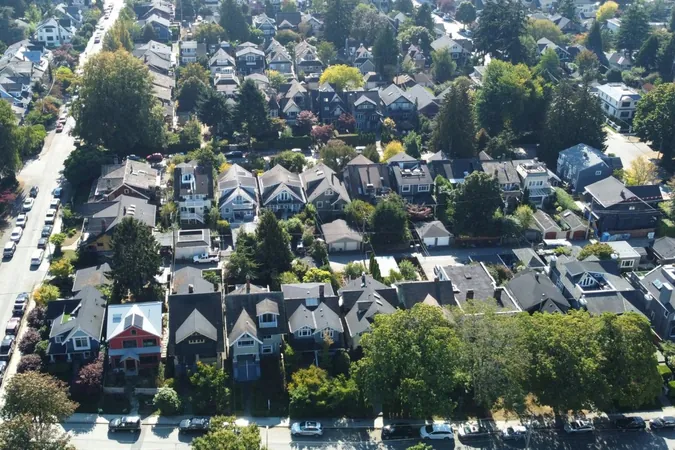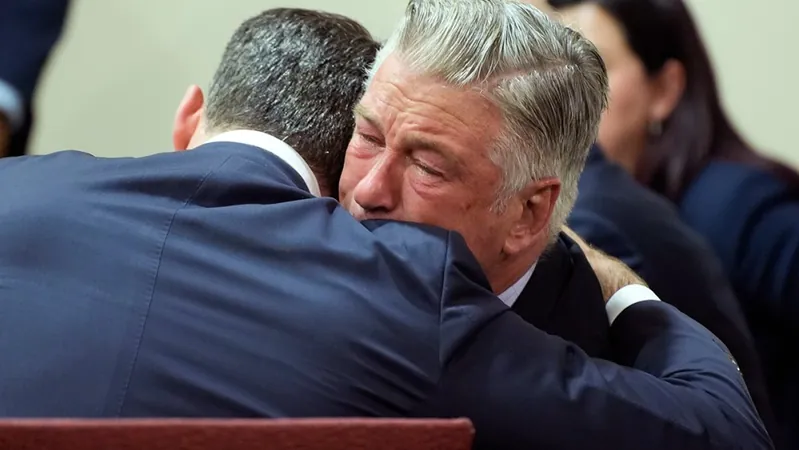
B.C. Court Declares Vancouver Housing Law Unconstitutional: What This Means for the City's Development Future
2024-12-24
Author: Emma
B.C. Court Declares Vancouver Housing Law Unconstitutional
VANCOUVER — In a landmark decision, the B.C. Court of Appeal has struck down a law enacted by the provincial government aimed at facilitating a supportive housing project in the Kitsilano neighborhood of Vancouver, ruling it unconstitutional.
The law, passed in 2023 at the request of the City of Vancouver, was intended to expedite the approval of a controversial 12-storey development on Arbutus Street, designated to provide housing for low-income residents and those reliant on various support services. However, the proposal faced fierce opposition from the Kitsilano Coalition for Children & Family Safety Society, which subsequently launched a legal challenge against the city's preliminary approval for the project's rezoning.
The ruling highlighted that the provincial government acted out of concern that the ongoing litigation could hinder the rezoning process, leading to the adoption of the Municipal Enabling and Validating Act to smooth the project's path. Although the B.C. Supreme Court had upheld the law last November, the coalition maintained that this legislation infringed upon the judicial system's essential supervisory role as conferred by the Constitution.
A three-judge panel concluded that the legislation constituted a significant interference with the court's adjudicative authority. Peter Gall, representing the coalition, described the ruling as a vital reinforcement of the rule of law, asserting that it protects the citizens’ right to challenge governmental decisions in court. “This case wasn’t just about the housing crisis or if this specific development should proceed; it was about the constitutional principles that safeguard our judicial system,” Gall stated.
The coalition had questioned the legitimacy of the public hearing held for the development, suggesting that the province had overstepped by assuming this was within its purview. Gall pointed out that the legislature assumed the role of the court by declaring the public hearing valid, a move he deemed inappropriate.
As a result of the ruling, the City of Vancouver is now required to hold a legitimate public hearing before proceeding with any development plans. The coalition expressed a desire to engage constructively with the city council to modify the proposals and ensure better alignment with community needs.
Gall further accused the provincial government of pushing the city to 'ram' the project through without adhering to established legal processes, neglecting fundamental democratic principles that uphold citizens’ rights to judicial recourse.
The City of Vancouver is currently evaluating the implications of the court's ruling, despite not being a party to the appeal. Housing Minister Ravi Kahlon commented that the province is also reviewing the matter and remains committed to addressing the pressing housing needs within the community.
This ruling not only highlights the ongoing tensions surrounding development in Vancouver but also reinforces critical legal precedents regarding the balance of power between legislative measures and judicial oversight. The broader implications could resonate across future housing projects, as community groups gain confidence in their ability to challenge governmental decisions that may seem to infringe upon constitutional rights. The road ahead for Vancouver's housing strategy remains uncertain as deliberations continue.









 Brasil (PT)
Brasil (PT)
 Canada (EN)
Canada (EN)
 Chile (ES)
Chile (ES)
 España (ES)
España (ES)
 France (FR)
France (FR)
 Hong Kong (EN)
Hong Kong (EN)
 Italia (IT)
Italia (IT)
 日本 (JA)
日本 (JA)
 Magyarország (HU)
Magyarország (HU)
 Norge (NO)
Norge (NO)
 Polska (PL)
Polska (PL)
 Schweiz (DE)
Schweiz (DE)
 Singapore (EN)
Singapore (EN)
 Sverige (SV)
Sverige (SV)
 Suomi (FI)
Suomi (FI)
 Türkiye (TR)
Türkiye (TR)